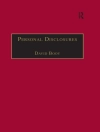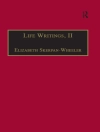This book
explores the role of literature as a means of mediating religious conflict in early modern England. Marking a new stage in the ‘religious turn’ that generated vigorous discussion of the changes and conflicts brought about by the Reformation, it unites new historicist readings with an interest in the ideological significance of aesthetic form. It proceeds from the assumption that confessional differences did not always erupt into hostilities but that people also had to arrange themselves with divided loyalties – between the old faith and the new, between religious and secular interests, between officially sanctioned and privately held beliefs. What role might literature have played here? Can we conceive of literary representations as possible sites of de-escalation? Do different discursive, aesthetic, or social contexts inflect or deflect the demands of religious loyalties? Such questions open a new perspective on post-Reformation English culture and literature.
Table of Content
1 Introduction: a world of difference: religion, literary form, and the negotiation of conflict in early modern England – Jonathan Baldo and Isabel Karremann
Part I: Religious ritual and literary form
2 Shylock celebrates Easter – Brooke Conti
3 Protestant faith and Catholic charity: negotiating confessional difference in early modern Christmas celebrations – Phebe Jensen
4 Singing in the counter: goodnight ballads in Eastward Ho – Jacqueline Wylde
5 Romancing the Eucharist: confessional conflict and Elizabethan romances – Christina Wald
6. Edmund Spenser’s The Ruines of Time as a Protestant poetics of mourning and commemoration – Isabel Karremann
Part II: Negotiating confessional conflict
7 Letters to a young prince: confessional conflict and the origins of English Protestantism in Samuel Rowley’s When You See Me You Know Me (1605) – Brian Walsh
8 Tragic mediation in The White Devil – Thomas J. Moretti
9 ‘A deed without a name:’ evading theology in Macbeth – James R. Macdonald
10 Henry V and the interrogative conscience as a space for the performative negotiation of confessional conflict – Mary A. Blackstone
11 Formal experimentation and the question of Donne’s ecumenicalism – Alexandra M. Block
12 Foucault, confession, and Donne – Joel M. Dodson
13 Afterword: reformed indifferently – Richard Wilson
Index












